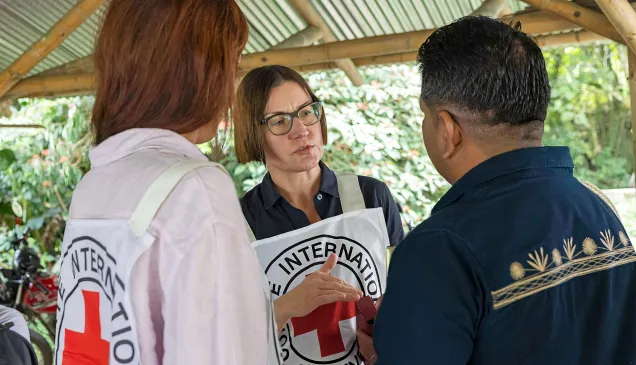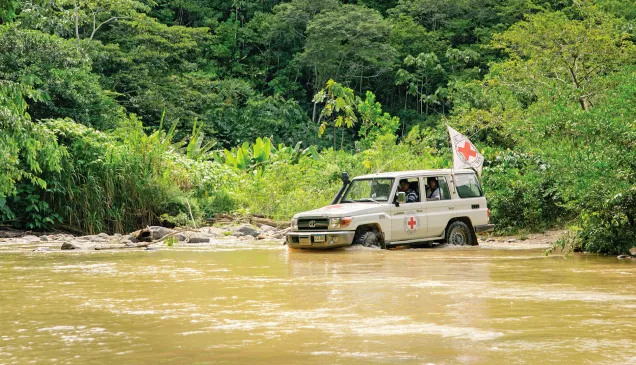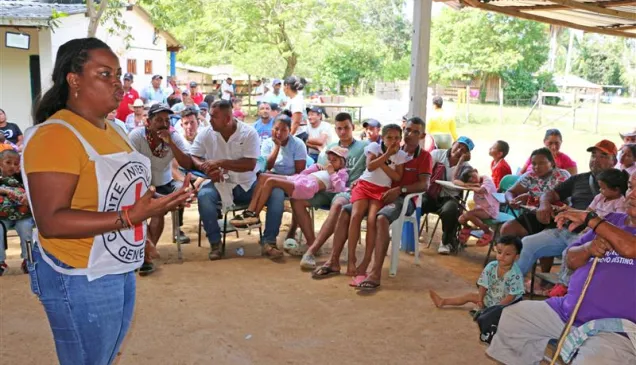Lost in a maze: the footprints left behind
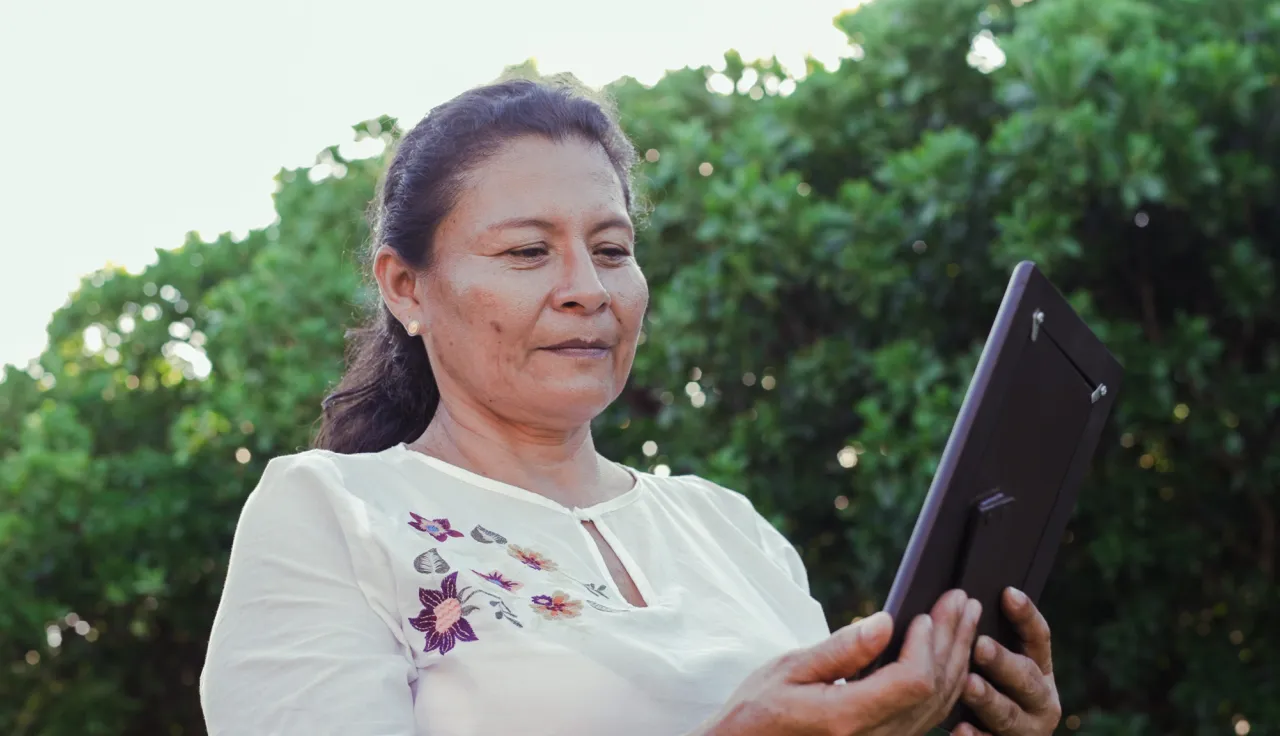
The experience of having a missing family member is unique and can only be truly understood by those who have experienced it. For more than 30 years, we have been hearing from thousands of people who have had to handle the disappearance of a family member.
In 2023, we documented 222 cases of people missing in connection with the armed conflicts and violence that occurred in that year. These data confirm that this is still the reality in 18 departments, of which Arauca, Cauca, Nariño, Norte de Santander, Chocó and Valle del Cauca are the most affected, with 75 %s of the total number of documented cases.
These regions, characterised by historical and social complexities, continue to be epicentres of this problem. Data compiled by the ICRC reveal that, from the entry into force of the Peace Agreement in 2016 until December 2023, disappearances have continued, with a total of 1,476 people missing.
Territorial disputes between state and non-state armed actors not only mean that disappearances persist, but also create a hostile environment that can paralyse family members' attempts to access the insti- tutions in charge of the search. Many families, caught between the desire to search for their loved ones and the fear of reprisals, opt for silence, which increases underreporting. In other cases, people report their family member as missing after long periods of time, when the traces of their disappearance may have been erased and finding them becomes even more difficult.
The civilian population often finds itself between a rock and a hard place, pressured by armed actors, threatened by the opposing side and suffering reprisals. The civilian population must never be involved in conflicts and must be
respected at all times
In this instance, it is worrying that, of the 222 cases registered in 2023, 49 were children and adolescents. Problem analysis highlights the vulnerability of children and youth caught up in armed conflicts and violence. The disappearance of children has a lasting psychological and psychosocial impact on communities. It is a tragedy that goes beyond individual loss and puts the future of society at risk.
These figures are only a glimpse into the reality of thousands of families, who find it difficult to access state support routes (particularly in rural areas) and who suffer the anguish of not knowing the whereabouts of their loved ones and whether they will be reunited with them alive. We reiterate our call to all armed actors, both state and non-state, to respect humanitarian norms, which establish that the disappearance of people must be prevented and all possible measures must be taken to avoid it.
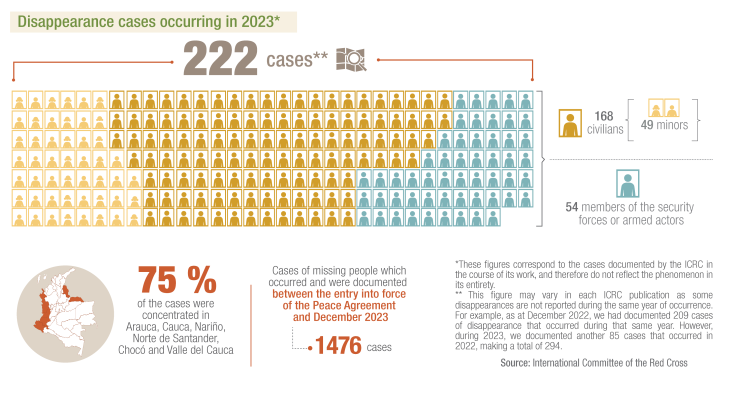
We urge the state to implement the national search system and strengthen the Unit for the Search for Missing Persons [Unidad de Búsqueda de Personas dadas por Desaparecidas – UBPD], as well as the medi- co-legal system. In addition, we reiterate the need to guarantee the families of the missing people access to state support routes.
We at the ICRC reaffirm our commitment to continue supporting families and individuals who have searched tirelessly, and those who continue challenging the time and who will not rest until they find their missing relatives.
Read 'Humanitarian Report 2024'
- The human cost of armed conflicts in Colombia
- Wars have limits that must be respected: Lorenzo Caraffi
- The invisible consequences of explosive devices
- Lost in a maze: the footprints left behind
- Worrying increase in violence against health in Colombia
- Return to freedom: 44 years of neutral intermediation
- Rights do not end behind bars
- Communities tell their stories
- Calls to action

